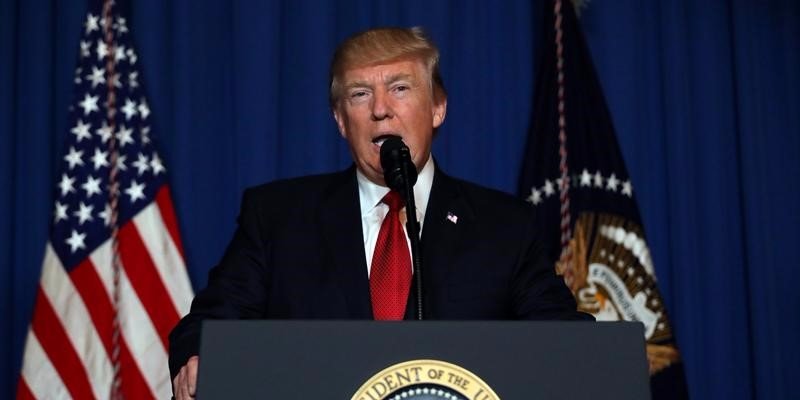Day 70–81 Here’s What You Don’t Know About Syria
 With the plethora of worries surrounding the Donald Trump presidency, it was easy to forget the somewhat-terrifying fact that in addition to him being able to run our country into the ground, Trump is also the commander in chief of the Most Powerful Military in the World (TM; we don’t spend that $600 billion for nothing), giving him the power to run other countries into the ground as well…
With the plethora of worries surrounding the Donald Trump presidency, it was easy to forget the somewhat-terrifying fact that in addition to him being able to run our country into the ground, Trump is also the commander in chief of the Most Powerful Military in the World (TM; we don’t spend that $600 billion for nothing), giving him the power to run other countries into the ground as well…
Last week, Trump launched 59 missiles at a Syrian airfield, reportedly in response to a chemical attack carried out by Syrian President Bashar Assad’s regime that killed 80 civilians in Syria. At least five people were killed by the US airstrike, Reuters reports.
While it seems like the default attitude towards any of Trump’s actions is automatic condemnation, this one might make you think a bit deeper.
Case in point, the Syrian civil war is not a simple case of good vs. bad, or of two forces opposing each other; there are many sides fighting, each with vastly different interests and support systems. The three main combatants—Assad’s regime, Syrian rebels, and the Islamic State of Iran and Syria (ISIS)—have been warring with each other for years, essentially decimating the landscape and civilians of Syria in the process.
The U.S. has previous backed the Syrian rebels, but mainly those who primarily oppose ISIS, not those who are focused on removing Assad from power.
As with seemingly every Trump-related topic, this reluctance to oppose Assad can be attributed to Russia. Assad and Putin have a strong alliance, and Putin’s administration has deployed military resources in an effort to quell the rebellious uprising. Tepid relations with Russia have previously stopped the U.S. from attacking Assad, and when Trump won the presidency, many assumed that he would continue this non-interventionist strategy, especially due to his alleged ties to Russia.
Instead, this move can be interpreted as a much-needed condemnation of the Assad regime by the Trump administration.
This is a complicated conflict, and there may not be a right move. Perhaps this airstrike will galvanize Putin and Assad against the U.S., resulting in an international catastrophe. Perhaps Putin will bow to international pressure and flip on Assad; although that seems unlikely. The most likely scenario seems to be a US-backed coup against Assad.
Trump’s main objective has always been to defeat ISIS, and this might be one of the first efforts by him that actively take action against ISIS, beyond trying to control a religion or a race. He likely believes that the most effective way to do so is to remove Assad from power. Pay attention, kids. This isn’t over.

